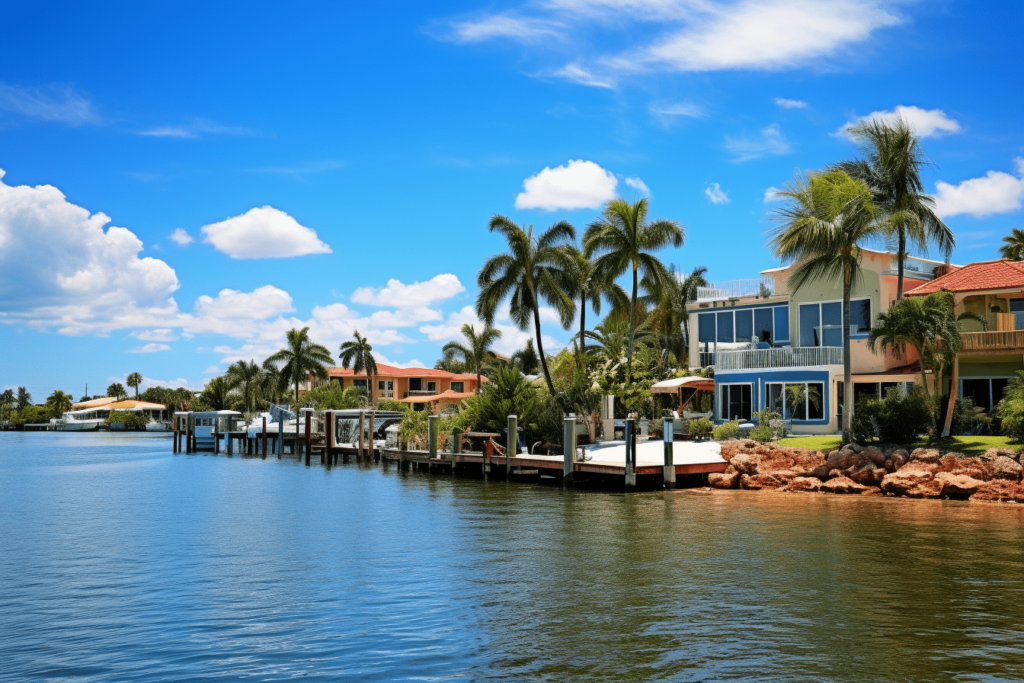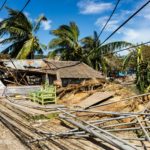In recent years, the traditional insurance landscape has seen a shift with an increasing number of homeowners in Florida deciding to self-insure.
This guide delves into the concept of self-insurance, its pros and cons, and the process of implementing it in Florida. It aims to provide a comprehensive understanding of the significant financial commitment self-insurance demands and the risks involved, helping homeowners make informed decisions.
At the Culbertson Agency, we generally do not recommend self-insuring for the vast majority of people. While self-insurance provides potential savings and control over funds, it simultaneously presents considerable financial risks and responsibilities.
What is Home Insurance?
Home insurance, also known as homeowners insurance, is a form of property insurance that covers losses and damages to an individual’s house and to assets in the home. It also provides liability coverage against accidents in the home or on the property.
There are several types of home insurance policies, each offering different levels of protection. However, most standard policies include coverage for:
- Dwelling: This covers the physical structure of your home, such as the walls and the roof.
- Personal Property: This covers the personal belongings inside your home, like furniture, appliances, and clothing, whether they’re damaged or stolen.
- Liability Protection: This covers you if someone else is injured on your property and decides to sue.
- Additional Living Expenses (ALE): This covers extra costs you might incur if your home is damaged and you need to live elsewhere during repairs.
The cost of home insurance is determined by factors such as the location of the home, the condition of the home, the presence of certain safety features, and the amount of coverage you choose.
It’s important to note that home insurance is typically required by mortgage lenders, and even if it’s not required, it’s a wise financial decision to protect one of your most valuable assets.

Can Self-Insurance Be a Good Substitute to Usual Insurance?
Self-insurance is when a person or a company saves money to deal with unexpected problems or losses, instead of buying an insurance policy from a company. It’s like having a piggy bank for emergencies. If something goes wrong, the money comes from this piggy bank. But if everything goes fine, the money stays with them.
Remember, self-insurance needs a lot of money saved up to begin with. Also, you should be ready to handle the possibility of big, impromptu expenses. If you decide to self-insure, you manage your own claims and can save money in the long run, especially if your losses are less than what you would have paid in insurance premiums. But, it can be risky and you should think about it thoroughly, considering your financial standing, your readiness to take risks, and your ability to manage your own claims.
How Self-Insurance Works in Florida
Self-insurance is another way to prepare for potential losses or damages in Florida, instead of buying regular insurance policies for your house or car. In simple terms, it means you save the money you’d normally pay for insurance, and use it yourself when needed.
Florida has rules for people wanting to self-insure. According to Florida’s laws (Section 324.171), if you wish to self-insure your car, you must show that you have at least $40,000 of your own money available and free from debt.
For homeowners, self-insurance means putting the money they would usually spend on insurance into a savings account or an investment. If their property gets damaged or lost, they use this saved money. However, remember that if something happens to your house, all the costs will come from your pocket.
Reports say that about 15% of homeowners in Florida self-insure, which is twice the US average of 7%. This could be because of the increasing price of property insurance in the state, leading more people to think about self-insurance.
Remember, while self-insurance might save you money if your losses are less than what you’ve saved, it could also mean big out-of-pocket costs if something unexpected happens. Thus, consider your financial health and your comfort with risk before deciding to self-insure.
The Rising Costs of Traditional Home Insurance in Florida
House insurance costs in Florida are rising faster and higher than in any other state in the U.S., causing strain for many homeowners.
Reports show that Floridians are paying almost three times the national average for insurance. The Insurance Information Institute predicts that by 2023, insurance rates in Florida might go up by 40%.
By the end of 2022, the average yearly insurance bill for homeowners had already jumped to over $4,200, from $3,600 before.
Several things have caused this rise. Florida’s location makes it more vulnerable to natural disasters like hurricanes and floods, which can cause a lot of damage to homes.
The changing climate is also adding to these risks. As the risks go up, insurance companies have to charge more to make sure they can pay for any damage claims.
But it’s not just weather-related damage causing the price increase. Other things, like the cost to rebuild houses and a rise in legal cases about water damage, are also factors.
Some homeowners, faced with these growing costs, are thinking about self-insurance as an alternative to regular house insurance. This comes with its own risks and problems, so it’s not a decision to make lightly.
Ultimately, the costs of house insurance in Florida are going up due to a mix of weather-related risks, the cost of rebuilding, and legal issues.
These rising costs are causing trouble for homeowners, forcing them to consider other options or risk not having any insurance coverage at all.
The Potential Savings, Control, and Flexibility of Self-Insurance
Self-insurance can offer potential financial savings and provide greater control and flexibility compared to traditional insurance. Here’s how:
Potential Savings:
With self-insurance, you essentially act as your own insurer. Instead of paying premiums to an insurance company, you set aside money regularly into a dedicated account or fund. This approach can lead to significant savings over time, particularly if you experience fewer losses than anticipated.
For example, if the amount you save by not paying premiums exceeds the cost of any losses you incur, you could end up with a net financial gain. It’s also worth mentioning that, unlike insurance premiums which are non-refundable, money set aside for self-insurance remains yours even if you don’t make any claims.
Control:
When you self-insure, you have full control over your funds and how they are used. You decide when to pay for a loss, how much to pay, and whether to dispute a claim. This level of control can be beneficial in managing costs and ensuring that funds are used effectively.
Moreover, self-insurance eliminates the need for dealing with insurance companies, navigating their policies, or waiting for claims to be approved. This can reduce stress and save time, especially in the event of a loss.
Flexibility:
Self-insurance offers flexibility in terms of how much you set aside and when. You can adjust the amount based on your current financial situation and perceived risk level. This flexibility allows you to tailor your approach to risk management according to your unique circumstances and needs.
However, it’s important to note that self-insurance comes with its own risks. It requires a significant amount of financial resources and risk tolerance. If a major loss occurs, you must be prepared to cover all costs out of pocket. Therefore, self-insurance should only be considered if you have a strong financial foundation and a clear understanding of the potential risks involved.

Why You Might Not Want to Self-Insure
Self-insurance comes with certain financial risks and potential major out-of-pocket costs that must be carefully evaluated.
Here are the key considerations:
Financial Risks:
When you self-insure, you take on the full financial risk of any loss or damage. This means if an unfortunate event like a car accident or a natural disaster occurs, you’re completely responsible for all the associated costs. There’s no insurance company to share the burden.
Major Out-of-Pocket Costs:
The costs associated with major incidents can be substantial. For instance, if your home is severely damaged by a hurricane, the cost of repair or rebuilding could run into tens or even hundreds of thousands of dollars. If you’re self-insured, these costs come directly out of your pocket. And if the funds you’ve set aside for self-insurance aren’t sufficient, you may need to dip into your savings or other assets, which could significantly impact your financial stability.
Lack of Support in Disasters:
Traditional insurance companies provide support in the aftermath of disasters, including assistance with claims processing and recovery efforts. As a self-insurer, you won’t have access to this support. You’ll be managing everything yourself, from assessing the damage and estimating repair costs to finding contractors and overseeing the work.
Evaluating Personal Financial Stability and Potential Losses:
Before deciding to self-insure, it’s crucial to assess your financial stability and potential losses thoroughly. Consider whether you have enough resources to cover a significant loss without impacting your daily life or long-term financial goals.
Keep in mind that some losses, such as liability claims if someone is injured on your property or due to your actions, can be unpredictable and exceptionally high. Therefore, even if you feel comfortable covering typical property damage costs, you should consider whether you could handle a large, unexpected liability claim.
While self-insurance can offer control, flexibility, and potential savings, it also comes with significant financial risks and responsibilities. It requires diligent planning, careful risk assessment, and a strong financial foundation. Therefore, it’s not suitable for everyone and should be considered carefully.
How to Self-Insure in Florida
In Florida, the process of self-insurance involves meeting certain requirements set by the state. For example, any person or entity wishing to self-insure needs to obtain a certificate of self-insurance from the relevant department.
Florida has specific requirements for individuals wanting to be self-insured. For homeowners, self-insurance involves saving the money they would have spent on insurance premiums and putting it into a savings or investment account. This fund is then used in case of any damages or losses to their property. It’s crucial to note that the homeowner takes on all financial risks associated with potential damage to their home.
Setting Aside Funds Equivalent to Premiums:
As part of the self-insurance process, individuals or entities must regularly set aside funds that would otherwise be used to pay insurance premiums. This creates a financial buffer that can be used to cover potential losses. The amount you set aside should ideally match or exceed what you would pay in insurance premiums, but the exact amount will depend on your personal risk tolerance and financial capacity.
Regular Property Maintenance and Risk Management:
When you choose to self-insure, it’s crucial to prioritize regular property maintenance and effective risk management. Regular maintenance can help prevent damage and reduce the likelihood of major repairs or losses. This includes tasks like checking for leaks, maintaining heating and cooling systems, and ensuring that your property is well-protected against common risks in Florida, such as hurricanes and flooding.
Risk management also involves making smart decisions about your property. For instance, you might choose to invest in storm shutters or reinforced roofing to protect against hurricane damage, or install a security system to deter theft.
It’s important to note that self-insurance doesn’t mean you’re completely unprotected. In fact, Florida law provides liability insurance limits of $10,000 for those who have obtained a certificate of self-insurance.
However, given the significant financial commitment required and the risks involved, self-insurance isn’t for everyone. It’s a good idea to consult with a financial advisor or insurance professional before deciding to self-insure.
Weighing the Pros and Cons of Self-Insuring
Self-insuring a home in Florida has its own set of pros and cons. Here’s a recap based on the sources mentioned:
Pros:
- Cost Savings: The main advantage of self-insurance is the potential for cost savings. Instead of paying premiums to an insurance company, you set aside money in a fund that can be used to cover potential losses.
- Control Over Funds: Self-insuring gives you more control over your funds. You decide when and how much to pay if a loss occurs.
Cons:
- Financial Risk: Self-insuring means assuming all financial risks. If a major incident occurs, you could face substantial out-of-pocket expenses.
- Lack of Support: Unlike traditional insurance, self-insurance doesn’t provide support in case of disasters. You’ll need to manage all aspects of the recovery process yourself4.
- Requirement of Liquid Assets: Self-insurance requires you to have liquid assets set aside for repairs.
- Limited Access to Funds: The amount of money you can access in case of a disaster is limited to what you’ve set aside.
According to industry analysts, 15% of Florida homeowners are now self-insuring, which is double the national average of 7%. However, it’s essential to plan carefully before deciding to self-insure. Consider whether you can afford significant out-of-pocket costs and whether you have the resources to handle the recovery process on your own.
Given the considerable financial commitment required and the risks involved, self-insurance may not be suitable for everyone. It’s recommended to consult with a financial advisor or insurance professional before making a decision.









